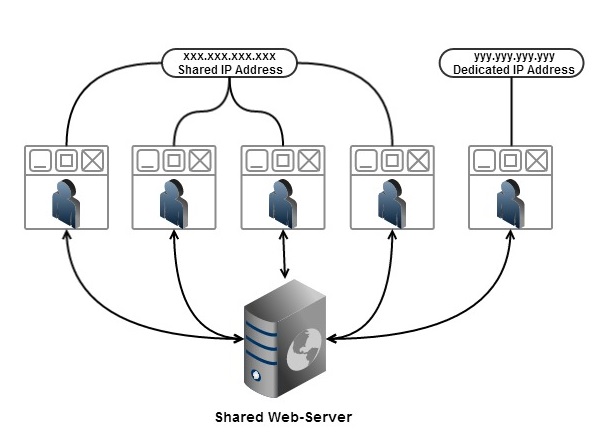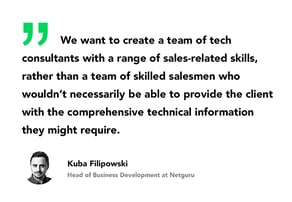Choose the Best Web Hosting with This Easy-to-Follow Checklist

What you need is a checklist that you can work through systematically - and that’s exactly what we’re going to provide for you here.
There are so many web hosting services available online today that when it comes to choosing the right one to suit your needs, it can often feel like you’re treading through a minefield. Free hosting, shared hosting, dedicated hosting, collocated hosting – the options seem endless and sometimes paralysing.
The fact of the matter is that there is no one-size-fits-all ethos that can be taken with hosting services. Just like no two websites are ever exactly the same, neither are two hosting service providers, nor the actual services that they offer. Put simply, it will all depend on what you wish to accomplish with and include in your website that will determine where you look for an appropriate hosting service.
Having said that, there are of course service providers out there which are simply better than others – but how do you separate the wheat from the chaff when there is so much grain to sift through? What you need is a checklist that you can work through systematically to ensure that the hosting service that you’re interested in is fully equipped to cater for your needs. And that’s exactly what we’re going to provide for you here.
Checklist – choosing the perfect web host
1. Your needs as the webmaster
Before you start your Google searches for hosting providers, you first need to be absolutely clear in your head – or, even better, on paper – exactly what you will need from your host in order for your website to function exactly as you would like it to.
So, consider the following before you start sending emails and making phone calls:
Q: What type of website are you running?
A: By this I mean, is the primary function of your site to be for the purposes of ecommerce, or are you a blogger looking to see a return on an affiliate marketing program? Will you be photo sharing on your website, video sharing, news, brochures, catalogues, directories? Make sure that this is very clear in your head, as different types of website will require different types of hosting, and various hosting providers will be better equipped to accommodate your specific needs.
Q: What applications will your website use?
A: It will be unlikely you will be happy with a website that is just simply a skeleton – home page, about page, blog page, contact details. No, of course your site will be supporting a range of applications or widgets, such as search, shopping carts, advertisement panels, customer recommendations or social media feeds. The more applications your website supports, the heavier it will be, and this will affect your hosting plan.
You will also need to consider if you will require a cloud application management platform or a platform as a service, such as Heroku or Engine Yard.
Q: How many domains will I need?
.com? .org? .net?
A: SMEs will largely get away with a single .com domain that includes location-specific words or other keywords. Multiple domains might be useful for generating extra traffic – some web users don’t necessarily associate .com with blogs, for instance, so registering both .com and .net might be useful – but you must remember that each variation will cost you money.
2. Terms Of Service
Simply hosting your website should only be the beginning of the service. Once you know what your website will require to run as you would like it to, you need to consider the terms of service as offered by the host you are contemplating doing business with.
Q: What sort of uptime does the host guarantee?
A: 99% should be the absolute minimum. Right now, it’s possible to deliver even 100% uptime, so don’t hesitate to look for such hosts. Also, make sure you understand the procedures should you discover that your host doesn’t deliver on this promise (i.e. you should be compensated).
Q: What about pricing?
A: You will have a budget, of course, and so you need to ensure that the package that you are enquiring about covers all the services that you require.
Q: What are the renewal policies and trial period regulations?
A: It is unreasonable for a host not to allow you to have a free trial of their services – and this should be a no-obligation free trial at that. Furthermore, you need to understand the renewal policy for when your contract runs out. Some hosts will try and charge you for switching to another provider, so make sure you’re aware whether this is the case from the outset.
Q: What customer support do I have?
A: Customer support is an extremely important consideration. If, for instance, you suddenly find that your site is unavailable (and therefore costing you business), whom do you contact? Is there a 24-hour hotline service, or are you simply supposed to email your service provider? Check out online forums and ask around on social media to find out about the support quality of the host in question.
3. Flexibility
As your business grows, your website will need to grow in accordance. So, consider what your host will offer in terms of scalability when making your enquiries. Remember, you should only ever have to pay for what you use, so make sure you discuss future upgrades when negotiating the deal.
4. Backup
Your web host should always be running a backup and restore program silently in the background to ensure that the contents of your website are always secure and available. You need to consider, though, who can restore the backup files should they be needed – yourself, the web host, or both of you.
Good backup needs to be frequent and automated, so make sure that this is offered in the package.
5. Handling Data Safety
Security should, of course, be the number 1 priority of your web host provider. So, consider the following:
Q: Does the host provide SSL (Secure Sockets Layer)?
A: SSL (Secure Sockets Layer) is the standard security technology for establishing an encrypted link between a web server and a browser. This link ensures that all data passed between the web server and browsers remain private and integral.
Q: What about a dedicated IP address?

Image by namecheap.com
A: A dedicated IP address will give your website and hosting account complete autonomy – that is to say that your IP address will be absolutely unique and not shared by any other hosting accounts that may reside on the same server. It is in this sense that if you are planning to add an SSL certificate then a dedicated IP address might be for you.
While it is not longer essential, like it once was, to have a dedicated hosting IP in order to get an SSL, it is still the preferred and most common and reliable method of doing so.
However, for hosts that support SNI (server name indication) technology, it is now possible to install multiple SSL certificates on a shared IP address, though there are problems with this, as is explained on namecheap.com:
“Having a few SSL certificates on a shared IP address may cause issues with older versions of some browsers. In this case, all the visitors of such websites will receive a message containing information about untrusted connection, indeed the website is going to be available via HTTPS protocol. Dedicated IP address helps to avoid such issues.”
Q: Who do you recommend?
A: When advising our clients on a trustworthy web hosting service, we usually point to Hetzner. To date, it's been a reliable hosting provider with reasonable pricing and and hassle-free setup. They tick all the boxes, so we recommend Hetzner as a great place to start your search for the perfect web host.
We hope this list will make your web hosting choice much easier! Do you have any further questions? Would you like to share your experiences of choosing a hosting service for your website? Let us know in a comment!
We hope you're happy with your website in all possible ways, but check this post just in case - see if your website doesn't suffer from most common design or development mistakes.






















